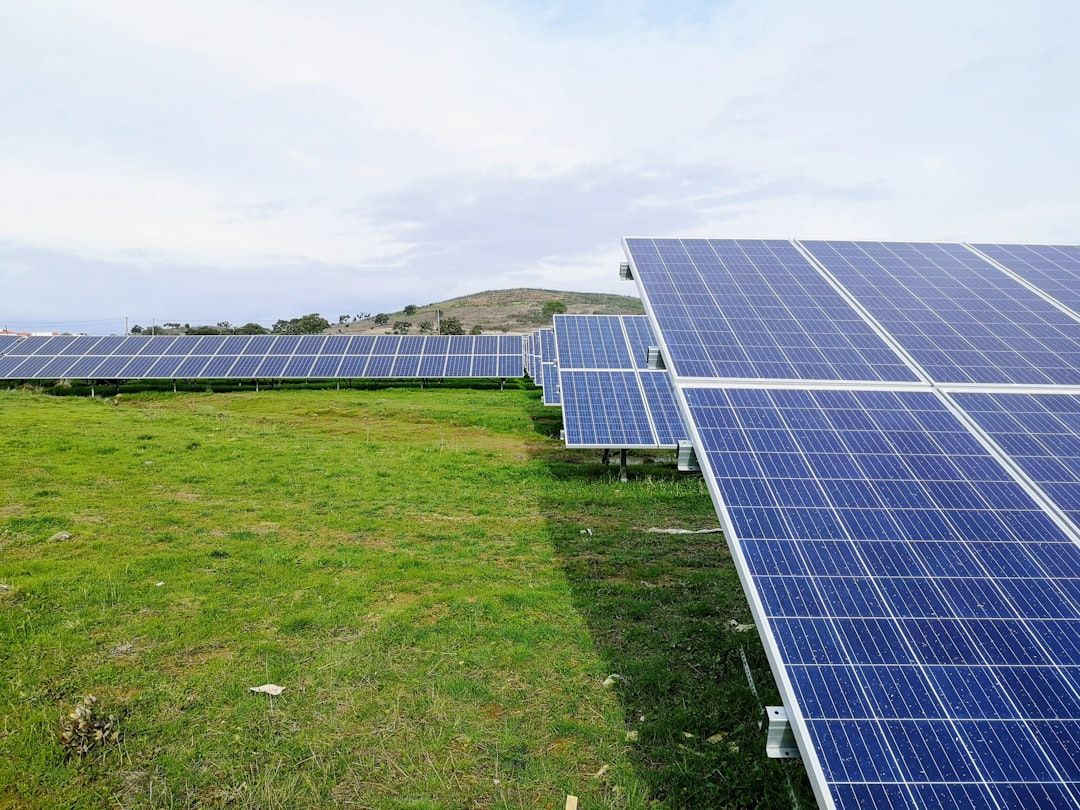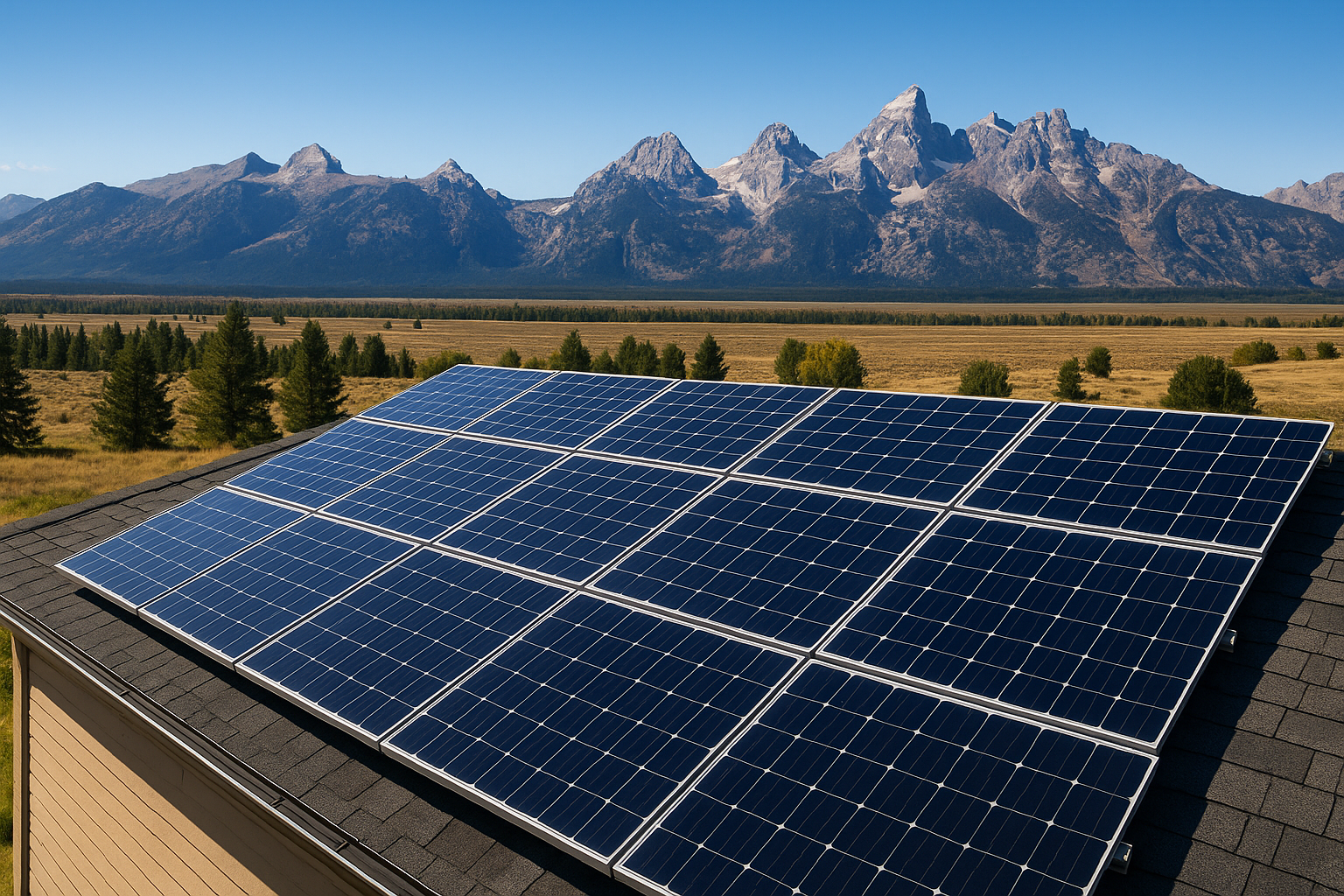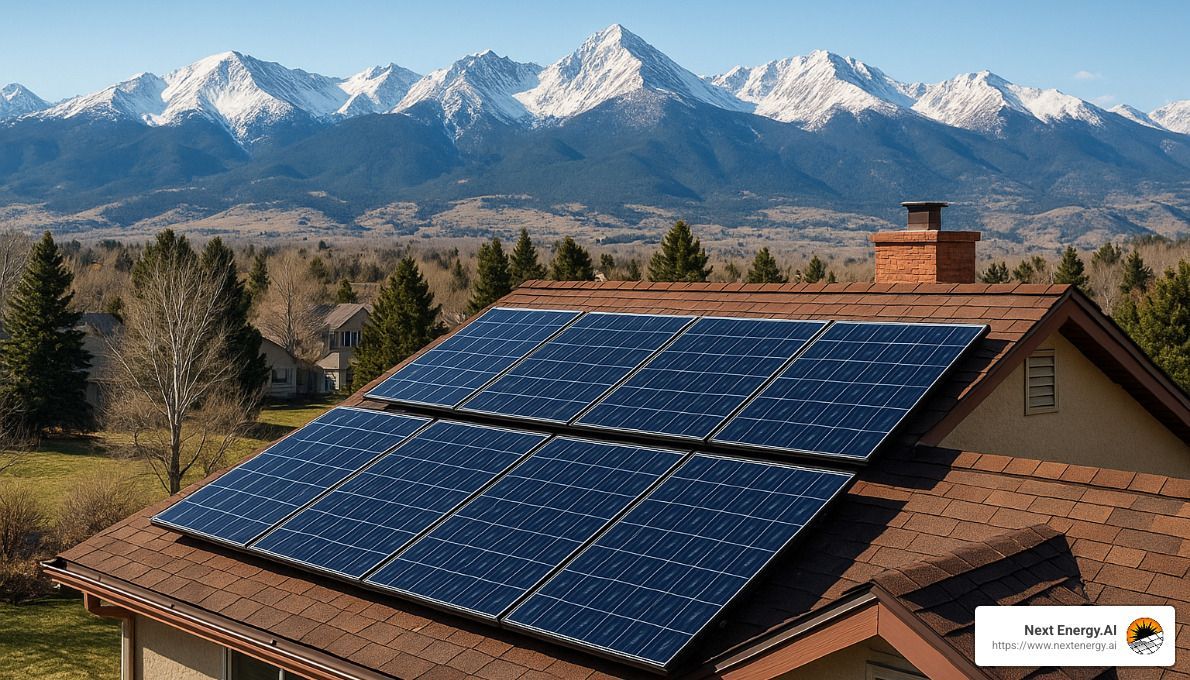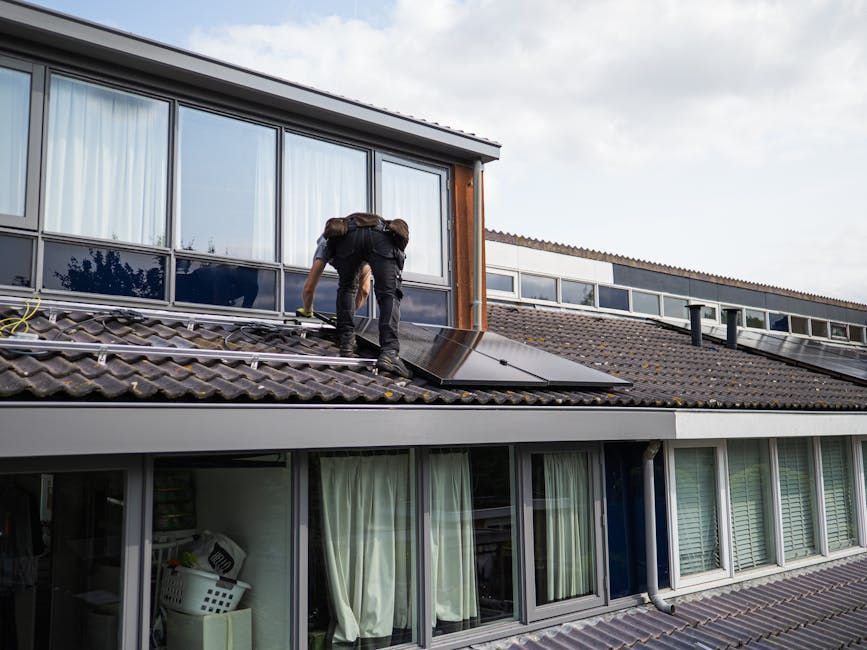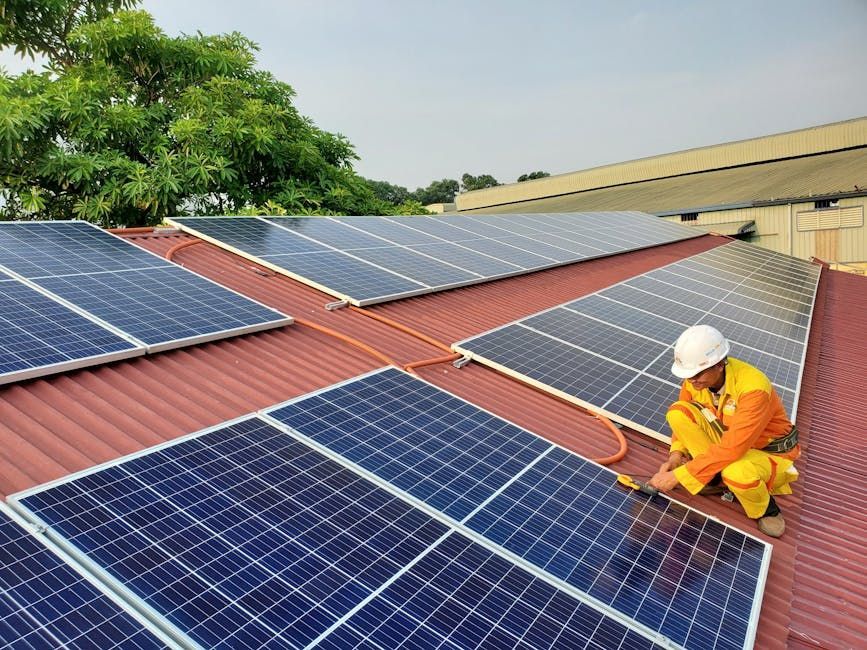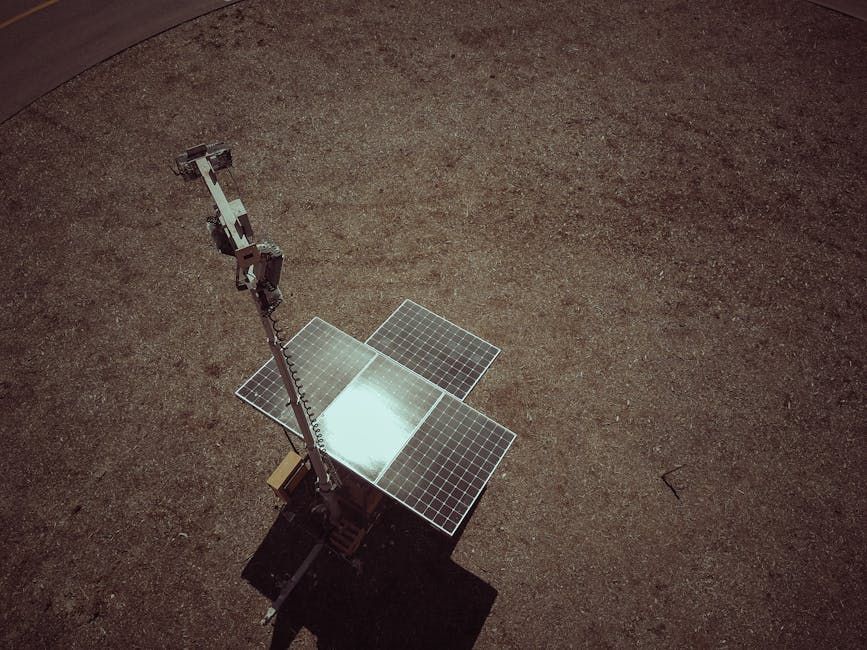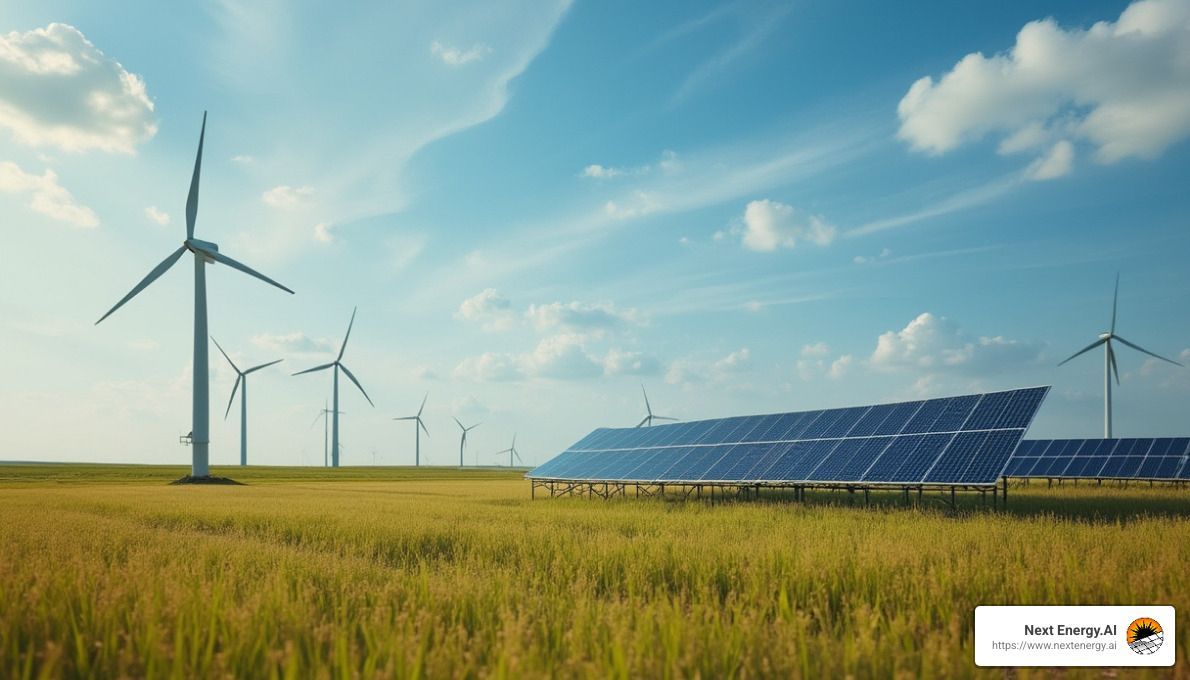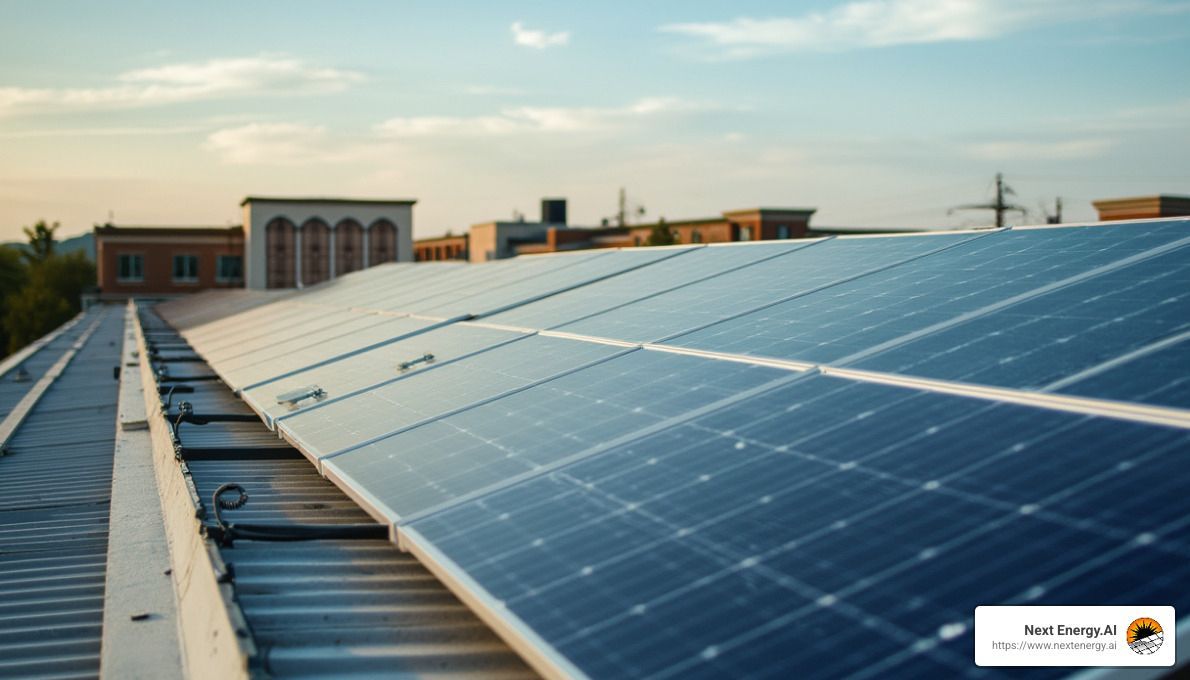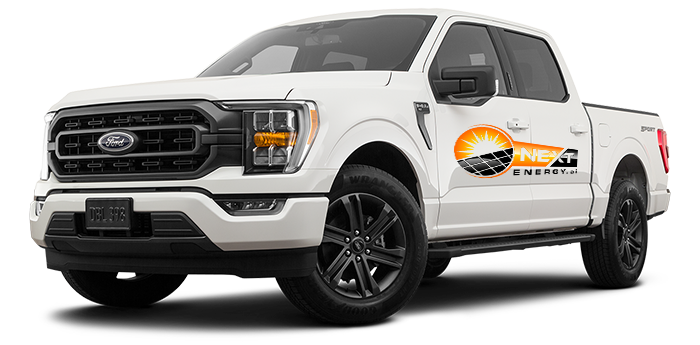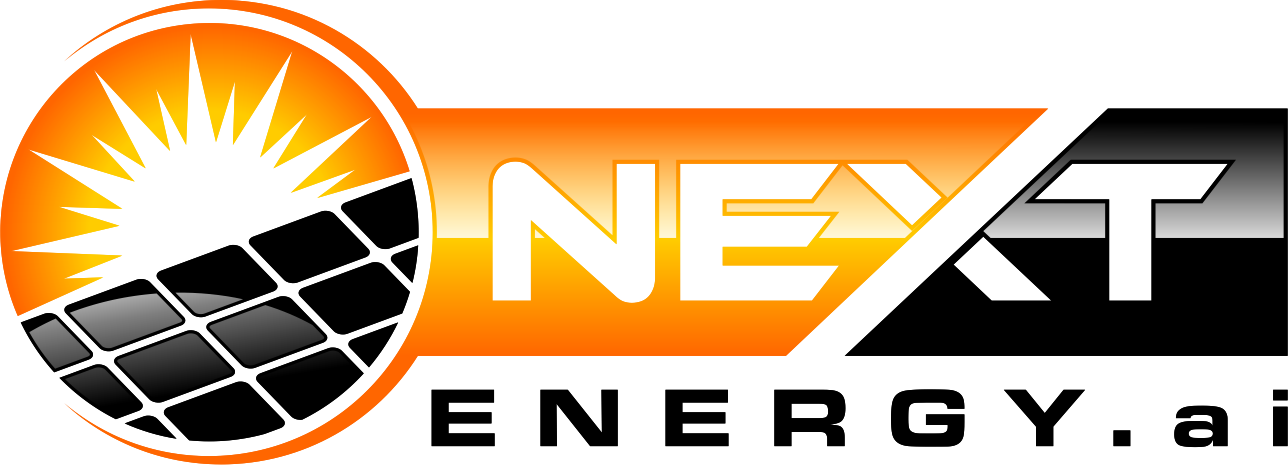A Practical Guide to Solar Panel Costs in Colorado
The Real Cost of Going Solar in Colorado
If you've been considering solar for your Colorado home, you're probably wondering about the bottom line. Let's cut to the chase: solar panel cost colorado averages $2.82 per watt in 2025. For most homeowners, this translates to about $14,117 for a standard 5 kW system before incentives, or just $9,882 after applying the 30% federal tax credit.
Here's what you can expect to pay based on common system sizes:
System Size: 5 kW
Before Incentives: $14,117
After 30% Federal Tax Credit: $9,882
System Size: 8 kW
Before Incentives: $22,587
After 30% Federal Tax Credit: $15,811
System Size: 10 kW
Before Incentives: $28,234
After 30% Federal Tax Credit: $19,764
Those numbers might seem substantial at first glance, but there's a reason why so many of your neighbors are making the switch. Colorado's remarkable sunshine is practically begging to be harnessed! With over 300 sunny days each year, our state is a solar powerhouse waiting to be tapped.
I've watched installation costs drop dramatically over the past decade – we're talking a 47% decrease. Combined with robust incentive programs, the financial case for going solar has never been stronger for Colorado homeowners.
The payback period for most systems falls between 9-11 years, which might sound like a while until you consider that modern solar panels reliably produce electricity for 25+ years. Over that lifetime, the average Colorado system generates more than $31,000 in electricity savings. That's money staying in your pocket instead of going to your utility company.
What surprises many of my clients is learning about Colorado's unique climate advantage for solar production. Our panels actually perform better in our cooler mountain air while still soaking up that intense high-altitude sunshine. It's the best of both worlds!
I'm Spencer Gordon, CEO of NextEnergy.ai. Through my NAPCEP certification in photovoltaics and years helping Colorado families steer solar panel cost colorado variables, I've developed a passion for helping homeowners find the right solar solution with North American-made equipment that stands up to our unique climate.
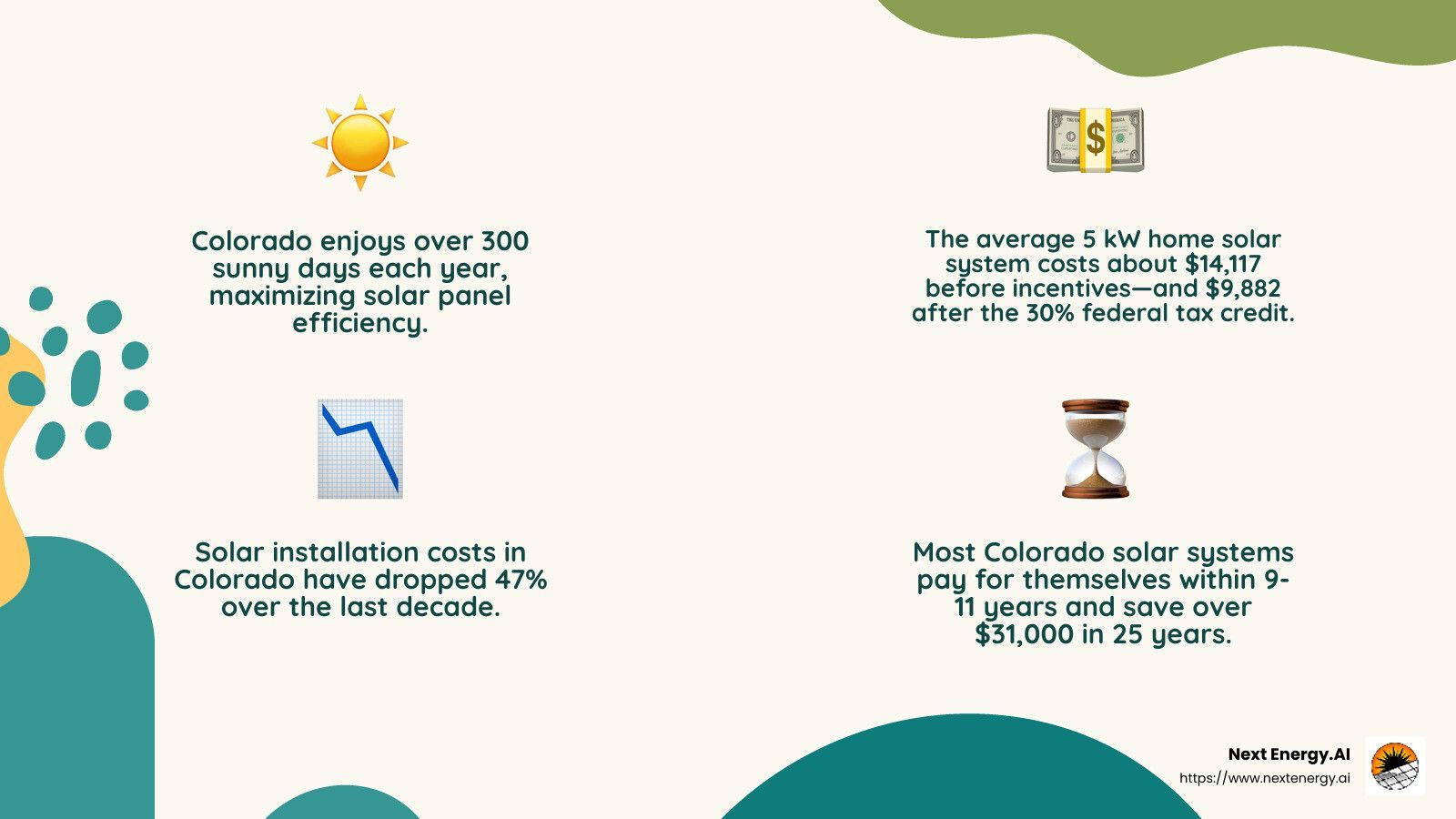
Solar Panel Cost Colorado: 2025 Snapshot
The cost of solar panels in Colorado has reached a sweet spot in 2025. With equipment prices continuing to drop and federal incentives still going strong, more Colorado homeowners are finding that solar isn't just good for the planet—it's great for their wallets too.
When we talk about solar panel cost Colorado, we measure it in dollars per watt ($/W). This helpful metric lets you compare different system sizes and installer quotes apples-to-apples.
As of March 2025, Colorado homeowners are paying an average of $2.82 per watt before incentives. For perspective, a typical 5 kilowatt (kW) system—enough to power most standard homes—costs about $14,117 upfront. Apply the 30% federal tax credit, and your net cost drops to a much more manageable $9,882.
"When folks call us at Next Energy.AI, they almost always ask the same first question: 'What's this going to cost me?'" says our installation team leader with a smile. "While $2.82 per watt is our average, we see prices ranging from $2.60 to $3.41 depending on your roof complexity, the equipment you choose, and where you live in Colorado."
Average Solar Panel Cost Colorado vs. National
Colorado homeowners enjoy a nice advantage when it comes to solar panel cost Colorado compared to the rest of the country. Our state's average of $2.82 per watt sits about 7% below the national average of $3.03 per watt.
This difference isn't just random luck. Several unique Colorado factors influence our solar pricing:
Colorado's mature solar market has created an efficient installation infrastructure, helping keep labor costs competitive. Plus, the high concentration of solar installers along the Front Range creates healthy competition that benefits homeowners.
Jennifer, a recent solar convert in Golden, told us: "I ended up paying about $18,000 for my system before incentives, which was actually less than I expected after looking at national numbers. After my tax credit, it came down to around $12,600—totally worth it!"
Interestingly, Colorado homes typically install smaller systems (average 4.9-7.5 kW) compared to the national average (7.6 kW). This can sometimes nudge our per-watt costs higher, as fixed costs get spread across fewer watts.
Solar Panel Cost Colorado by System Size
The size of your solar system significantly impacts your total investment, with larger systems typically offering better economies of scale. Here's what solar panel cost Colorado looks like across different system sizes:
System Size: 3 kW
Before Incentives: $8,470
After 30% Federal Tax Credit: $5,929
Cost Per Watt: $2.82/W
System Size: 3 kW
Before Incentives: $8,470
After 30% Federal Tax Credit: $5,929
Cost Per Watt: $2.82/W
System Size: 4 kW
Before Incentives: $11,294
After 30% Federal Tax Credit: $7,906
Cost Per Watt: $2.82/W
System Size: 5 kW
Before Incentives: $14,117
After 30% Federal Tax Credit: $9,882
Cost Per Watt: $2.82/W
System Size: 6 kW
Before Incentives: $16,940
After 30% Federal Tax Credit: $11,858
Cost Per Watt: $2.82/W
System Size: 8 kW
Before Incentives: $22,587
After 30% Federal Tax Credit: $15,811
Cost Per Watt: $2.82/W
System Size: 10 kW
Before Incentives: $28,234
After 30% Federal Tax Credit: $19,764
Cost Per Watt: $2.82/W
While this table shows consistent per-watt pricing for simplicity, real-world installations often see slightly lower per-watt costs for larger systems. This happens because fixed costs like permitting, design, and crew deployment get spread across more panels.
William from Grand Junction, who recently installed an 8 kW system, shared his experience: "I spent about $20,000 after the tax credit. It was a bigger investment upfront, but my per-watt cost was noticeably lower than what my neighbor paid for their smaller 4 kW system."
Most Colorado homes need between 5-8 kW to cover their electricity needs, though your ideal size depends on your energy habits, home size, and efficiency. Our team at Next Energy.AI can help determine the perfect system size for your specific situation, ensuring you don't overpay for capacity you don't need.
How System Size & Home Variables Influence Cost
When determining the appropriate solar system size for your Colorado home, several key factors come into play that directly impact your solar panel cost Colorado:
Energy Consumption (kWh)
The average Colorado home uses approximately 711 kWh of electricity per month, which is about 25% below the national average. This lower consumption is partly due to our state's mild climate and partly because Coloradans tend to be more energy-conscious than folks in other states.
To get the right size system for your home, you'll want to take a look at your past year of electricity bills. Add up your annual usage and divide by 1,200 (a good rule of thumb for Colorado's solar production) to estimate the system size you'll need in kilowatts. For instance, if your family uses 8,400 kWh annually, you'd need roughly a 7 kW system.
"Most of our customers at Next Energy.AI can offset 90-100% of their electricity needs with systems between 5-8 kW," explains our design specialist. "But we always look at your actual usage patterns before making recommendations. Every home is unique!"
Roof Characteristics
Your roof plays a surprisingly big role in what your solar installation will cost:
South-facing roofs are ideal in Colorado, capturing maximum sunlight throughout the day. If your roof faces east or west, you might need a few more panels to achieve the same output, which can increase your costs.
Roof pitch matters too. The sweet spot in Colorado is approximately 30-40 degrees, which matches our latitude for optimal year-round production. Too flat or too steep, and your system may not perform as efficiently.
Shading from trees, chimneys, or neighboring buildings can reduce system efficiency. We can work around this with panel-level optimizers, but they do add to the overall cost.
Roof complexity is another factor. If your roof has multiple planes, dormers, vents, and other obstructions, installation takes more time and labor, driving up costs.
Altitude & Weather Considerations
Colorado's unique geography and climate create some interesting considerations for solar installations:
Our high altitude means more intense solar radiation, which is actually good news! Your system will likely produce more power per installed watt than the same system at sea level.
Snow considerations matter in many parts of Colorado. Systems in snowier regions may require additional racking strength and clearance, which can increase costs slightly but ensures your system stands up to winter weather.
Hail resistance is another important factor given our state's frequent hailstorms. Impact-resistant panels may cost a bit more upfront, but they provide peace of mind for the long haul.
Paul from Colorado Springs shared his experience with us: "After going solar last year, my electric bill dropped to just $14 per month. Next Energy.AI explained that Colorado's altitude actually gives us more intense sunlight, making our system more productive than the same setup would be at sea level."
Future-Proofing Considerations
Many of our Colorado customers are planning ahead for changing energy needs:
If you're thinking about purchasing an electric vehicle in the next few years, you might want to size your system 2-3 kW larger to accommodate the additional electricity demand.
Home electrification is another trend we're seeing. As more homeowners transition from gas to electric appliances and heating, energy needs typically increase.
Adding battery storage is popular but does increase costs, typically by $10,000-$18,000 depending on capacity. However, with Colorado's occasional power outages, many homeowners find the investment worthwhile.
Megan from Grand Junction told us: "We purposely went a little bigger with our system to prepare for future heat pumps and electric cars. Now we've had no electric bill other than the connection fee all year. The battery storage has been fantastic too—it kept us running through several power outages when our neighbors were in the dark."
Equipment Breakdown: Panels, Inverters, Racking
The quality and type of equipment you choose significantly impacts your solar panel cost Colorado. Let's break down the main components:
Modern solar panels typically fall into three efficiency categories, with prices ranging from $0.70 per watt for standard efficiency (19-20%) to $1.40 per watt for premium panels with 22%+ efficiency. Most residential panels today produce between 370-450 watts each and come with 25-30 year warranties. At Next Energy.AI, we primarily use high-efficiency panels with at least 400W output to maximize production in Colorado's unique climate.
Inverters are crucial for converting DC electricity from your panels into usable AC electricity for your home. String inverters are the most affordable option but can be affected by partial shading. Microinverters attach to each panel individually, allowing independent operation even if some panels are shaded. For Colorado's variable weather conditions, we often recommend microinverters despite their higher upfront cost, as they typically deliver better long-term performance.
Mounting systems account for about 10% of system costs. Standard aluminum rails work well for most installations, but many Colorado locations benefit from added snow guards to prevent dangerous snow slides. If your roof isn't suitable for solar, ground-mounted systems are an option, though they typically cost 20-30% more than roof mounting.
Soft Costs & Local Regulations
Beyond the physical equipment, several "soft costs" contribute significantly to your solar panel cost Colorado:
Colorado has made impressive progress in streamlining solar permitting processes. Thanks to state law HB21-1284, solar permit fees are now capped at $500 for residential installations. Many jurisdictions also offer expedited permitting for standard residential systems, though you'll still need to go through building and electrical inspections, which typically add 1-2 weeks to your installation timeline.
Connecting to the grid (interconnection) involves some additional costs, including application fees that typically range from $50-$250 depending on your utility. Until recently, if your local grid infrastructure needed upgrading to accommodate your system, those costs could be substantial and were passed to homeowners.
The good news is that Senate Bill 24-218 recently changed this landscape significantly. This legislation now caps consumer charges for interconnection upgrades at $300 for systems up to 25 kW, shifting funding responsibility to utilities. This is a major win for homeowners in older neighborhoods where grid infrastructure might need upgrades.
"Before SB 218 took effect, I was quoted $7,000 for a transformer upgrade by Xcel Energy," shared a homeowner from the Denver area. "This new legislation is a game-changer for many Colorado neighborhoods with older infrastructure."
Labor and installation typically account for 25-30% of total system costs. Simple, single-plane roofs might require just 1-2 days of installation time, while complex roofs could take 3-4 days. Installation labor costs vary by region, with Denver metro and resort areas typically commanding higher rates. At Next Energy.AI, we employ NABCEP-certified installers, which ensures quality but may reflect in slightly higher labor costs compared to less-qualified installers.
For more detailed information about costs in different scenarios, check out our guide on the Average Cost to Install Solar Panels in Colorado.
Incentives, Net Metering & Long-Term Savings
Colorado offers a robust set of incentives that significantly reduce the effective solar panel cost Colorado homeowners pay, making solar more accessible and financially attractive:
Federal Investment Tax Credit (ITC)
The federal solar investment tax credit is like finding money in your tax return – it's the single most powerful tool for making solar affordable. Through 2032, you can deduct a full 30% of your total solar system cost directly from your federal taxes. This isn't just a deduction; it's a dollar-for-dollar reduction in what you owe Uncle Sam.
For perspective, on a typical 5 kW system costing $14,117, you'd get approximately $4,235 back at tax time, bringing your net cost down to $9,882. That's like getting your entire system on a 30% off sale!
If you don't have enough tax liability to use the entire credit in one year, don't worry – you can roll over the remainder to future tax years. Just be aware that this generous incentive won't last forever. It drops to 26% in 2033, 22% in 2034, and could disappear after that unless Congress extends it.
Colorado State Incentives
Living in Colorado means enjoying some extra perks when going solar, thanks to our state's commitment to renewable energy.
The sales tax exemption saves you the 2.9% state sales tax on your entire solar purchase. This might not sound like much, but on a $16,000 system, that's $464 staying in your pocket. Even better, many local municipalities also exempt their sales tax, potentially saving you an additional 2-8% depending on where you live.
The property tax exemption is a gift that keeps giving year after year. Solar typically adds $15,000-$25,000 to your home's value, but unlike most home improvements, this added value is exempt from property taxes in Colorado. For a $25,000 value increase, that's about $150 in property taxes you avoid paying every single year for the life of your system.
"When we crunched the numbers, the property tax exemption alone will save us over $3,000 during our system's lifetime," shares Melissa from Golden. "It's like getting an annual thank-you card from Colorado for going solar."
For those who need financing help, the RENU Loan Program offers up to $75,000 in low-interest loans specifically for clean energy improvements. With terms up to 20 years, many homeowners find their monthly loan payment is less than what they were paying the utility company.
Utility and Local Incentives
Beyond state-level incentives, your local utility might offer additional savings opportunities that further reduce your solar panel cost Colorado.
Xcel Energy customers can benefit from the Solar*Rewards program, which pays between $0.005 and $0.0375 per kWh produced for 20 years. This production-based incentive adds up over time, especially for larger systems. They also offer an income-qualified program that provides up to $1 per watt (maximum $7,000) for households that meet income guidelines.
Local governments across Colorado have created their own solar incentive programs. Fort Collins Utilities offers their BOOST Incentive Plan with up to $1,500 for solar, $3,000 for batteries, or $5,500 for a combined system. The Energy Smart Colorado program provides rebates up to 25% of project cost (maximum $2,500) in participating counties. Denver residents can access the Denver Solar Rebate Program, which provides up to $8,000 for income-qualified households.
These local incentives often have limited funding and work on a first-come, first-served basis, so it's worth checking with Next Energy.AI about current availability in your area.
Net Metering in Colorado
Net metering is the unsung hero of solar economics in Colorado. This policy allows you to essentially use the grid as your battery, sending excess electricity to the grid during sunny days and drawing from it when your panels aren't producing enough.
Colorado's net metering policies are among the most favorable in the country, with most utilities offering one-to-one credits – meaning each kilowatt-hour you send to the grid earns you a full retail-value credit. These credits typically roll over month-to-month, helping you bank summer sunshine for winter use.
At the end of each year, depending on your utility, you might have options to cash out excess credits or donate them to assistance programs. Systems under 10 kW generally qualify for the most favorable net metering terms, which is perfect since most residential systems fall within this range.
"Net metering completely transformed our electricity bill," explains Carlos from Boulder. "Instead of paying $130 every month, we now pay just the minimum connection fee most months, and our summer overproduction covers most of our winter usage."
It's worth noting that net metering policies can vary by utility and may change over time, so we always recommend checking your specific utility's current policy.
How Much Will You Save on Bills?
Let's talk dollars and cents – after all, that's what makes the solar panel cost Colorado worth it in the long run.
With Colorado's average electricity rate around $0.15 per kilowatt-hour and the typical home using about 711 kWh monthly, most households spend $105-$110 per month on electricity. A properly sized solar system can offset 90-100% of this usage, saving approximately $100 monthly or $1,200 annually.
Over a 25-year system lifespan (though many systems last 30+ years), these savings add up to $31,000 or more – and that's assuming electricity rates stay flat, which they won't. Historically, utility rates increase about 2-3% annually, making your future savings even greater.
For personalized savings estimates, we recommend using the PVWatts Calculator from the National Renewable Energy Laboratory (NREL). This free tool provides detailed projections based on your specific location in Colorado, roof orientation, and system size.
Payback Period & ROI in Colorado's Climate
Most Colorado homeowners reach their "payback point" – when energy savings equal their initial investment – in about 9-11 years. After that, it's essentially free electricity for the remaining 15+ years of system life.
What makes Colorado special is how our unique climate actually improves solar panel performance. While it might seem counterintuitive, cold-weather efficiency is real – solar panels operate more efficiently in cooler temperatures, making Colorado's cool, sunny days ideal for maximum production.
Our high altitude advantage means your panels receive more intense solar radiation with less atmospheric filtering. On bright winter days, snow reflection can actually increase production through the albedo effect, where fresh snow reflects additional light onto your panels.
Even our infamous hailstorms aren't the threat they might seem. Modern solar panels are tested to withstand hail up to 1 inch in diameter, and any damage is typically covered by homeowner's insurance. In fact, during Denver's catastrophic 2017 hailstorm that caused $2.3 billion in damage, the National Renewable Energy Lab's 3,000+ panel array suffered only one broken panel.
"What surprises many of our customers is that Colorado's climate is actually ideal for solar production," explains our technical director at Next Energy.AI. "The combination of abundant sunshine, cool temperatures, and high altitude creates perfect conditions for maximizing energy harvest from each panel."
When you consider all these factors together – federal incentives, state exemptions, local rebates, net metering, and Colorado's solar-friendly climate – the value proposition becomes clear. Solar isn't just an environmental choice; it's a smart financial decision for Colorado homeowners looking to take control of their energy costs for decades to come.
For more detailed information about the average costs in your specific region, check out our guide on the Average Cost to Install Solar Panels in Colorado.
Financing & Smart Shopping Strategies
Understanding your financing options is crucial when evaluating solar panel cost Colorado. Each approach has distinct advantages and considerations:
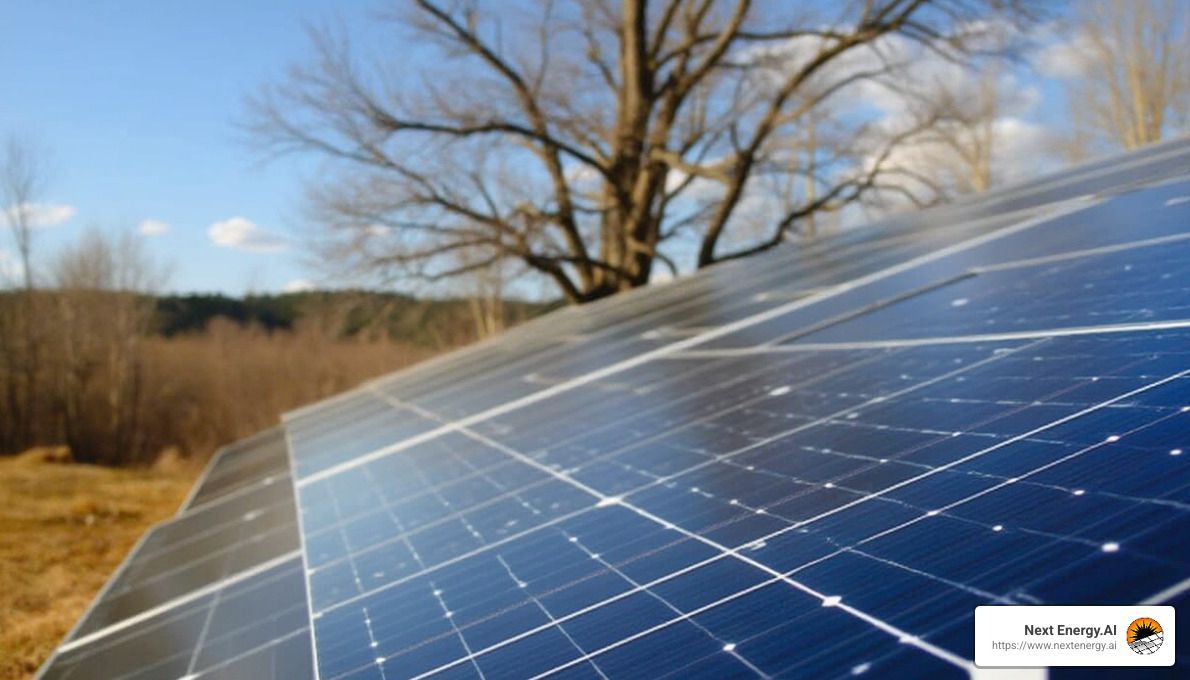
Cash Purchase
Paying upfront might seem intimidating, but it offers the cleanest financial path. With a cash purchase, you'll see the fastest payback period—typically just 9-11 years for most Colorado homes. There's something satisfying about owning your system outright from day one with no strings attached.
"Many of our customers are surprised by how quickly a cash purchase pays for itself," says Mike, our senior financial advisor at Next Energy.AI. "No interest costs means you capture the maximum lifetime savings, and there's no paperwork or loan agreements to manage."
Another significant advantage? You immediately claim the full 30% federal tax credit yourself, putting thousands back in your pocket next tax season. For a typical 5kW system, that's over $4,200 coming right back to you.
Solar Loans
Don't have $14,000 sitting around? No problem! Most Colorado homeowners finance their solar systems, and there are excellent options available:
Home equity loans or HELOCs typically offer the lowest interest rates, usually between 4-7%. Plus, the interest may be tax-deductible, saving you even more. These work well if you've built up equity in your home and have good credit.
Colorado's specialized RENU Loan program is designed specifically for renewable energy projects. These loans offer competitive rates for terms up to 20 years, making your monthly payments surprisingly affordable.
Many installers also partner with lenders offering solar-specific loans with simplified approval processes. The best part? Many of these are $0 down options, meaning you can start saving immediately if your loan payment is less than your previous electric bill.
"I was hesitant about financing at first," shares Amanda from Fort Collins, "but my monthly loan payment is actually $23 less than what I used to pay the utility. It feels like I'm getting paid to go solar!"
Lease/PPA Considerations
While we're seeing fewer leases and Power Purchase Agreements (PPAs) in Colorado these days due to the strong economics of ownership, they do offer a zero-upfront option for going solar.
With a lease or PPA, you'll make fixed monthly payments for the solar electricity, and the provider typically handles all maintenance and monitoring. This hands-off approach appeals to some homeowners.
However, there are important limitations to consider. You don't own the system, which means you don't get the valuable tax credits. Additionally, when selling your home, the lease must either be transferred to the new owner (which can complicate negotiations) or paid off.
At Next Energy.AI, we generally recommend ownership through cash purchase or loans for most Colorado homeowners. The math simply works better in the long run, especially with today's incentives and financing options.
Tips to Lower Your Solar Panel Cost
Beyond choosing the right financing, there are several clever strategies that can help reduce your solar panel cost Colorado and maximize your return on investment.
Bundle with other energy upgrades to save on installation costs. Adding an EV charger during your solar installation typically costs $1,000-$3,000—significantly less than retrofitting one later. Many of our customers are also combining solar with energy efficiency upgrades like better insulation or LED lighting. This smart approach means you can install a smaller, less expensive solar system while maximizing your overall energy savings.
Be strategic about battery storage. While batteries are increasingly popular, they add $10,000-$18,000 to system costs and aren't necessary for everyone. If you have full retail net metering (which most Colorado utilities offer), batteries primarily provide backup power rather than economic benefits. However, if you experience frequent outages or your utility doesn't offer favorable net metering, batteries become more valuable. Don't forget to check for incentives like Xcel Energy's Battery Connect program, which offers up to $500 per kW of battery capacity.
Time your purchase strategically. Many solar companies offer special pricing at the end of sales quarters when they're trying to hit targets. If your roof is nearing the end of its useful life, consider replacing it before installing solar—this avoids the cost of removing and reinstalling panels later. Also, make sure you have sufficient tax liability to use the federal tax credit in the year you install.
Schedule a professional roof inspection before finalizing your solar plans. This small upfront cost can save thousands by identifying any issues that need addressing before panels are installed. Nothing's worse than having to remove panels for roof repairs just a year or two after installation!
Negotiate soft costs like permitting and design fees. While equipment costs are fairly standard, these additional charges can vary widely between installers and may have room for negotiation.
Getting Accurate Quotes
The single most effective way to ensure you're getting a fair price on your solar system is to compare multiple quotes. Here's how to do it right:
Getting at least three quotes from different installers can save you an average of 10-15% compared to accepting the first offer. "I was shocked by how much prices varied between the three companies I contacted," reports Jordan from Boulder. "The difference between the highest and lowest quote was over $6,000 for essentially the same system!"
When comparing quotes, use cost per watt ($/W) as your standardized metric. This allows you to compare systems of different sizes on an equal basis. Make sure you're comparing similar equipment quality and warranties—the cheapest quote isn't always the best value if it uses lower-quality components or offers shorter warranties.
Before meeting with installers, do some homework. Have 12 months of electricity bills ready to share so they can accurately size your system. Use free tools like the NREL's PVWatts Calculator or Google's Project Sunroof to get a preliminary estimate of what size system you might need.
Verify installer credentials carefully. Look for NABCEP certification (North American Board of Certified Energy Practitioners), which is the gold standard in the solar industry. Choose installers with proven Colorado installation experience who understand our unique climate and building codes. And make sure they offer at least a 10-year workmanship warranty to protect your investment.
Ask detailed questions about equipment specifications, production guarantees, potential electrical upgrades, and who handles permits and interconnection paperwork. Getting clear answers to these questions upfront prevents surprises later.
At Next Energy.AI, we've developed a proprietary AI-driven solar assessment tool that analyzes your roof, shading, local weather patterns, and electricity usage to provide a highly accurate system design and production estimate. This technology helps ensure you get precisely the system you need—not oversized or undersized—maximizing your return on investment.
"The AI-optimized design saved us about 15% compared to quotes from traditional installers," says Chris from Loveland. "Plus, their monitoring system helps us track exactly how much we're saving each month."
For more information about our solar installation services and how we can help you steer the financing landscape, visit our Solar Installation Services page.
Conclusion
Understanding solar panel cost Colorado is the first step toward making an informed decision about powering your home with renewable energy. As we've explored throughout this guide, the average cost of $2.82 per watt translates to approximately $14,117 for a typical 5 kW system before incentives, or about $9,882 after applying the 30% federal tax credit.
While these numbers provide a useful benchmark, your specific costs will depend on factors unique to your home, energy usage, and the equipment you select. The good news is that with Colorado's abundant sunshine, favorable incentives, and strong net metering policies, solar power represents not just an environmental choice but a sound financial investment for most homeowners.
I've been helping Colorado families go solar for years now, and I've seen how transformative it can be for both their monthly budgets and peace of mind. Let me share what I believe are the most important takeaways from this guide:
System sizing matters - Getting the right-sized system based on your actual energy usage is crucial. Too small and you'll still have significant electric bills; too large and you're paying for capacity you don't need. This is why we take the time to analyze a full year of your energy usage before making recommendations.
Incentives dramatically cut your costs - Between the 30% federal tax credit, Colorado's sales and property tax exemptions, and various local rebates, many homeowners see their effective costs reduced by 40% or more. These incentives won't last forever, making 2025 an especially good time to make the switch.
Financing has made solar accessible to almost everyone - With today's $0-down options, many of our customers find that their monthly solar loan payment is actually less than what they were previously paying to the utility. Solar is no longer just for the wealthy - it's for anyone who pays an electric bill.
Colorado's climate is ideal for solar production - Our state's unique combination of abundant sunshine, high altitude, and cooler temperatures creates perfect conditions for solar production. I often tell customers that Colorado's climate is like the "Goldilocks zone" for solar panels - not too hot, not too cold, with plenty of sunshine year-round.
AI optimization takes solar to the next level - At Next Energy.AI, our intelligent energy management systems can further improve your system's performance and financial returns by optimizing when and how you use the energy you produce.
I recently visited Bryan, a customer in Denver who went solar last year. "After installing my system, my monthly electric bill dropped to just $4," he told me with a smile. "The system is performing even better than projected, and I expect it to pay for itself years sooner than initially calculated."
At Next Energy.AI, we're committed to helping Colorado homeowners steer the solar landscape with transparent information, cutting-edge technology, and exceptional service. Our AI-improved solar solutions transform standard solar panels into intelligent energy management systems that continuously optimize your energy usage.
Whether you're in Denver, Fort Collins, Colorado Springs, or anywhere along the Front Range, we invite you to contact us for a personalized assessment of your home's solar potential. With our team's deep expertise in Colorado's unique climate and incentive landscape, we'll help you design a system that maximizes your savings while minimizing your environmental footprint.
The future of energy is clean, renewable, and intelligent—and with Next Energy.AI, that future can start on your rooftop today.
